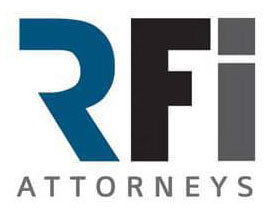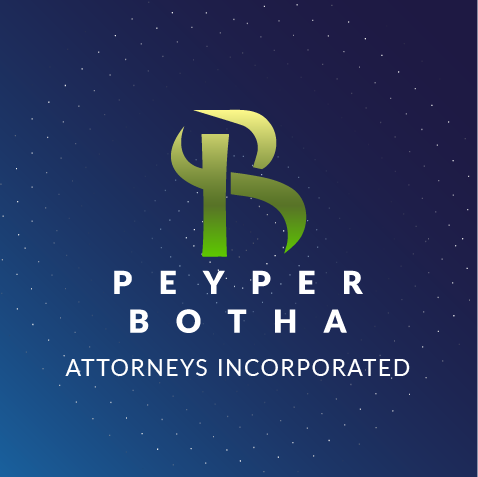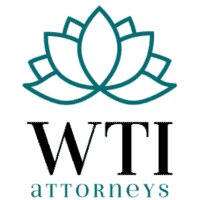Best Defamation Lawyers in South Africa
Share your needs with us, get contacted by law firms.
Free. Takes 2 min.
Or refine your search by selecting a city:
List of the best lawyers in South Africa
South Africa Defamation Legal Questions answered by Lawyers
Browse our 1 legal question about Defamation in South Africa and read the lawyer answers, or ask your own questions for free.
- I want to sue someone for defamation and harassment
- Someone posted me on social media, without my consent and started spreading rumours about me. How should i handle this?
-
Lawyer answer by OPRICHTER Legal Network
Collect all available evidence, including chat conversations, voice recordings, and any other supporting materials. After that, you may file a report with the police.
Read full answer
About Defamation Law in South Africa
Defamation law in South Africa is designed to protect individuals' reputations against unjustified attacks. In essence, defamation occurs when one party makes a false statement about another, damaging their reputation. This can occur through spoken words (slander) or written words (libel). South African law balances the protection of an individual’s reputation with the right to freedom of expression. The courts here strive to ensure that defamation suits do not unnecessarily stifle free speech while ensuring unjust harm to personal reputations is rectified.
Why You May Need a Lawyer
Seeking legal assistance in defamation cases can be crucial for several reasons:
1. Alleged Victim: If you believe your reputation has been unfairly harmed, professional legal guidance can help assess the validity of your claim and develop a strategy to repair the damage or secure compensation.
2. Alleged Perpetrator: If you are accused of defaming someone, an attorney can aid in building a defence, possibly negotiating settlements or clarifying statements to avoid or minimize legal repercussions.
3. Public Figures: Those in the public eye may seek to understand the nuances of permissible public critique versus defamation.
Local Laws Overview
South African defamation law is primarily governed by the common law principles of delict, which involve wrongful acts requiring compensation. Some notable elements include:
Unlawfulness: A statement must be unlawful to be considered defamatory. Freedom of speech is a valid defense if the statement served the public interest.
Intention or Negligence: Defamation requires the intention to harm or negligence in making the statement.
Damage: Harm or potential harm to the reputation must be proven.
Additionally, the Defamation Act and case law continue to shape the legal landscape, balancing reputation rights with free expression.
Frequently Asked Questions
What constitutes a defamatory statement?
A defamatory statement is one that unjustly harms another's reputation in the eyes of a reasonable person.
Is truth a defense to defamation?
Yes, if the statement is true and made in the public interest, it is a valid defense against defamation.
Can opinions be defamatory?
Generally, opinions are not defamatory if they are clearly presented as subjective views rather than statements of fact.
Are online statements subject to defamation laws?
Yes, defamatory remarks made online or through social media are subject to the same legal standards.
What remedies are available in a defamation case?
Remedies can include retractions, apologies, and monetary compensation for damages.
How is public interest considered in defamation cases?
Statements made for the public good, contributing to discussion on matters of public concern, may be protected under freedom of speech.
Can a defamation lawsuit include emotional distress damages?
Yes, if emotional distress is a direct result of the defamatory statement, it may be considered in damage assessments.
Does defamation require proof of harm?
Proof of harm or potential harm to reputation is necessary, although actual financial loss need not always be proven.
Can someone be held liable for sharing defamatory content written by someone else?
Yes, sharing defamatory content can make someone complicit and subject to liability.
How long do defamation proceedings typically take?
The duration varies, but defamation cases can take months to years, depending on the case complexity and court schedules.
Additional Resources
For further guidance, consider reaching out to:
Legal Aid South Africa: Provides free legal services to qualifying individuals.
Law Society of South Africa: Offers a directory of legal practitioners for those seeking representation.
South African Human Rights Commission: A statutory body that can guide on rights-related issues like freedom of expression.
Next Steps
If you believe you need legal assistance in a defamation matter, consider the following steps:
1. Consultation: Schedule a meeting with a lawyer specializing in defamation law to discuss your situation.
2. Evidence Collection: Gather any evidence, including written statements, online posts, or witnesses, to support your case.
3. Legal Strategy: Work with your lawyer to develop a legal strategy, whether you are pursuing or defending a defamation claim.
Engaging a qualified lawyer can provide clarity and direction, ensuring your rights and interests are adequately represented.
Lawzana helps you find the best lawyers and law firms in South Africa through a curated and pre-screened list of qualified legal professionals. Our platform offers rankings and detailed profiles of attorneys and law firms, allowing you to compare based on practice areas, including Defamation, experience, and client feedback.
Each profile includes a description of the firm's areas of practice, client reviews, team members and partners, year of establishment, spoken languages, office locations, contact information, social media presence, and any published articles or resources. Most firms on our platform speak English and are experienced in both local and international legal matters.
Get a quote from top-rated law firms in South Africa — quickly, securely, and without unnecessary hassle.
Disclaimer:
The information provided on this page is for general informational purposes only and does not constitute legal advice. While we strive to ensure the accuracy and relevance of the content, legal information may change over time, and interpretations of the law can vary. You should always consult with a qualified legal professional for advice specific to your situation.
We disclaim all liability for actions taken or not taken based on the content of this page. If you believe any information is incorrect or outdated, please contact us, and we will review and update it where appropriate.
Browse defamation law firms by city in South Africa
Refine your search by selecting a city.















